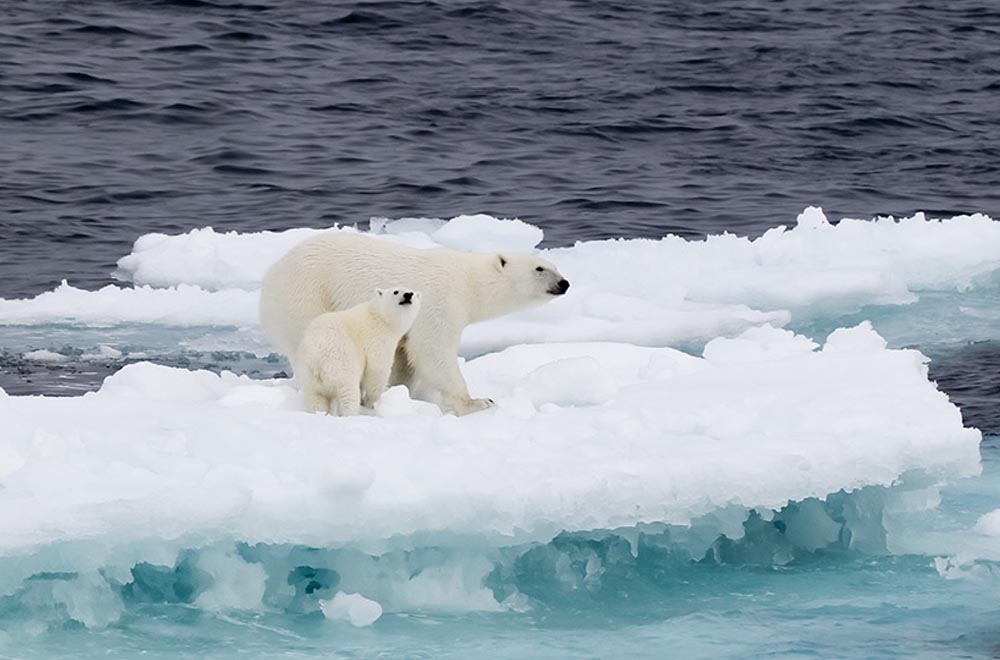Download (PDF, 2.4MB)
INTRODUCTION
Antarctica’s Thwaites Glacier
Diagonal cracks have been observed in Antarctica’s enormous Thwaites Glacier, and scientists fear that it might shatter into small pieces like a windscreen. They also fear that the loss of Thwaites Glacier might trigger the collapse of other nearby glaciers, thus leading to a sea level rise of several meters.
Mediterranean temperatures in the Arctic
The World Meteorological Organization has confirmed a temperature record of 100.4 degrees Fahrenheit, measured in the Siberian town of Verkhoyansk, 70 kilometers north of the Arctic Circle.A spokesman said that such temperatures “were more appropriate for the Mediterranean than for the Arctic”. High Arctic temperatures are driving wildfires in the region, as well as permafrost melting, both of which put more carbon into the atmosphere.
Loss of mass from Greenland’s icecap
166 billion tonnes of ice were lost from Greenland’s icecap in 2021. For the first time, rain has been observed at the high altitudes at the top of Greenland’s ice sheet. Summer melt water cascades through crevices in the ice sheet, reaching the bottom, where the water lubricates to flow of the ice towards the sea.
Paleoclimate records from polar ice cores
By studying ice cores taken from both Antarctic and Greenland, scientists are able to determine the composition of the atmosphere at the time when the ice was formed and the temperature. They find a strong correlation between CO2 content and temperature. The temperature is determined by studying the ratios of light to heavy isotopes of oxygen in the ice. The hydrogen-deuterium ratio is also used to determine temperature.
Loss of Arctic sea ice
The albedo effect is a feedback loop that involves the reflectivity of a surface. For example, snow-covered ice in the Arctic Ocean strongly reflects the sun’s radiation. However, when the ice melts, the darker sea water absorbs the radiation, thus contributing to further warming and further melting of the sea ice. Scientists predict that because of the albedo effect, the Arctic Ocean will soon be free of ice in September each year, and perhaps also in August.
The urgent need for climate action
Warning signs from both the Arctic and the Antarctic tell us that we must take urgent action to stop the use of fossil fuels and to replace these energy sources with renewable energy. We must fight against the influence that wealthy giant fossil fuel corporations have on our politicians and on the mass media. This is a matter of enormous importance, a life-or-death issue, not only for ourselves but also for all the other animals and plants with which we share the gift of life.
Read the entire book above or download it here.
We thank John Scales Avery, a renowned intellectual, EACPE board member, and theoretical chemist at the University of Copenhagen, for giving us permission to reproduce his latest book for EACPE.


